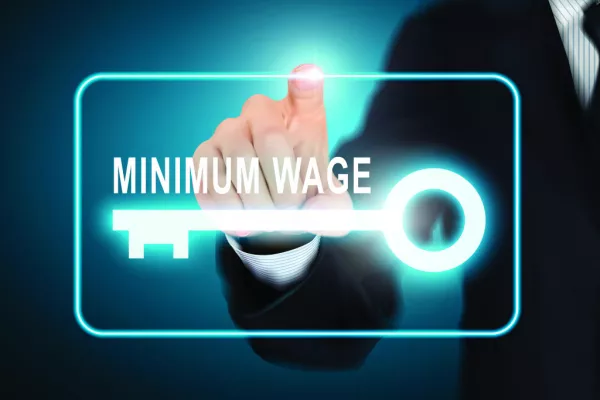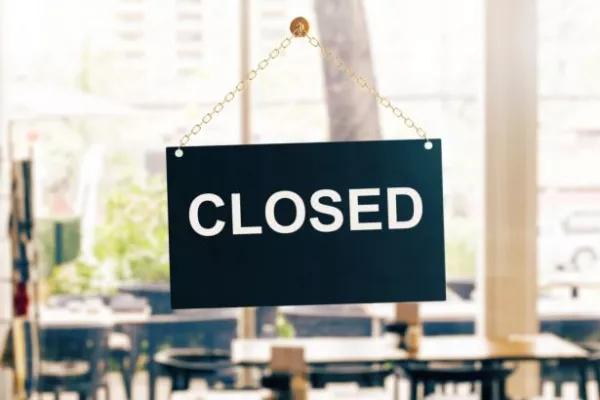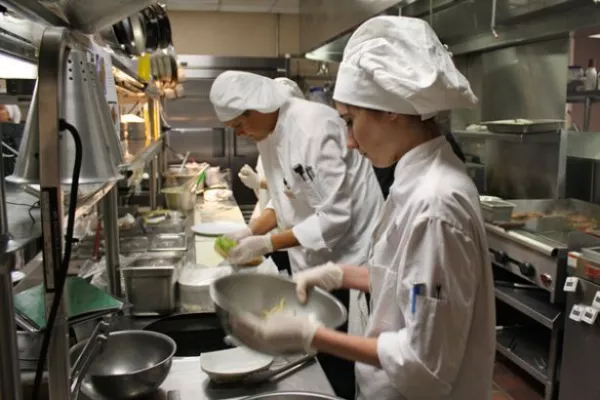The Minister for Finance Michael Noonan recently announced that if his Fine Gael party in reelected into Government, it would raise the minimum wage to €10.50 per hour.
Speaking to Reuters, Noonan said the 15 per cent increase would be applied before 2021. The hike would be mitigated by a for businesses by a cut in employers' social insurance contributions.
The issue of a minimum wage increase has been a longterm issue with the hospitality industry, with representative bodies such as the RAI speaking out against raising it, claiming it would cripple the industry.
Hospitality Ireland spoke to some of Ireland's top chefs abut their thoughts on the issue, a what effect a introducing a 'living wage' would make.
Derry Clarke, l’Ecrivain Restaurant, Dublin
As far as the minimum wage is concerned, everyone working is entitled to a 'decent living wage'. If the minimum wage increases, in business terms, we would have to restructure our prices.
Wages costs for the restaurant industry are already at 36 per cent for us due to fact that restaurants are labour intensive, ours being a Michelin Star establishment, even more so. Anyone that cooked Christmas dinner this year from start to finish at home will understand this more than most.
Luca Mazza, Head Chef, Pacinos, Dublin
I do think that within the restaurant sector there is a big anomaly with respect to gratuity (tips) which would give all if not the majority of minimum wage staff within the sector close to or above the national living wage already depending on how the staff deal with gratuity that is given by the customer. Therefore, I feel that to increase wage costs for a restaurant will with out doubt push prices up in a restaurant, in turn affecting the customer or cause some cost cutting in other areas.
I do think that certain restaurants differ from others so we cannot compare like with like, and so a national living wage could be justified for one restaurant but maybe less important for others. Restaurants are extremely high cost businesses to run with labour being one of the greatest costs. Therefore such a decision to implement a national living wage should be optional.
Jonathan Keane, Lisloughrey Lodge, Cong, Co Mayo
In my opinion, the introduction of a 20% pay hike to entry-level positions would have a very detrimental effect on the restaurant industry. Most restaurants in Ireland are already under pressure trying to cope with the heavy burden of taxation, utilities and raw materials. This would leave restaurateurs with no option but to pass this hike on to the customer, which would in turn have a very negative effect on the trust between restaurateur and customer.
Furthermore, the restaurant industry offers huge opportunities for advancement and promotion, unlike many industries in Ireland today. If employees are serious about a career in this industry, chances are they will advance themselves very quickly.
Ronan Ryan, Counter Culture, Powerscourt Townhouse, Dublin
It’ll stop hiring full stop. It only applies to waiters really who earn tips on top of the minimum wage, so they don't earn just €9.15 an hour, they earn depending on the split much more than that.
Denis Cotter, Cafe Paradiso, Cork I imagine some sections of the industry would struggle, but higher end restaurants could absorb it by also addressing the tipping issue along the lines of the radical changes being made in some US restaurants, whereby higher wages are paid and tipping is not allowed. It would mean higher menu prices but no actual increase to the customer (except to those who don't currently tip).
Garrett Bradshaw, The Pig’s Tale, Gorey
A living wage of €11.50/ph would mean a drastic increase in price to the customer. It would stop us from continuing to offering great value to our customers with local, seasonal ingredients. A perfect example of this is with the growing excise duty that has been applied to wine in the last number of years.
Five years ago a diner could expect a decent bottle of wine for around the €20 price point. These days you will struggle to find a bottle with a familiar grape for this price point and will be forced to move up to around €23-€26 for the same bottle.
Domini Kemp, Director, Itsa
Quite simply, the minimum wage increase that came into effect 1 Jan will cost us €40,000 in 2016. Over the last eight years, we have absorbed price increases from suppliers and never reduced salaries or imposed pay its during the recession, nor increased our own prices. Customers are still very price sensitive.
The margins in most food businesses are simply too small. Unless we could increase prices by 30-35 per cent, we would have to close. Our industry is full of mobile, young people who work part-time, are studying etc. They have different financial requirements. If some of these individuals want to pursue a job in hospitality, they quickly move into management and then this wage issue is less of an issue.









